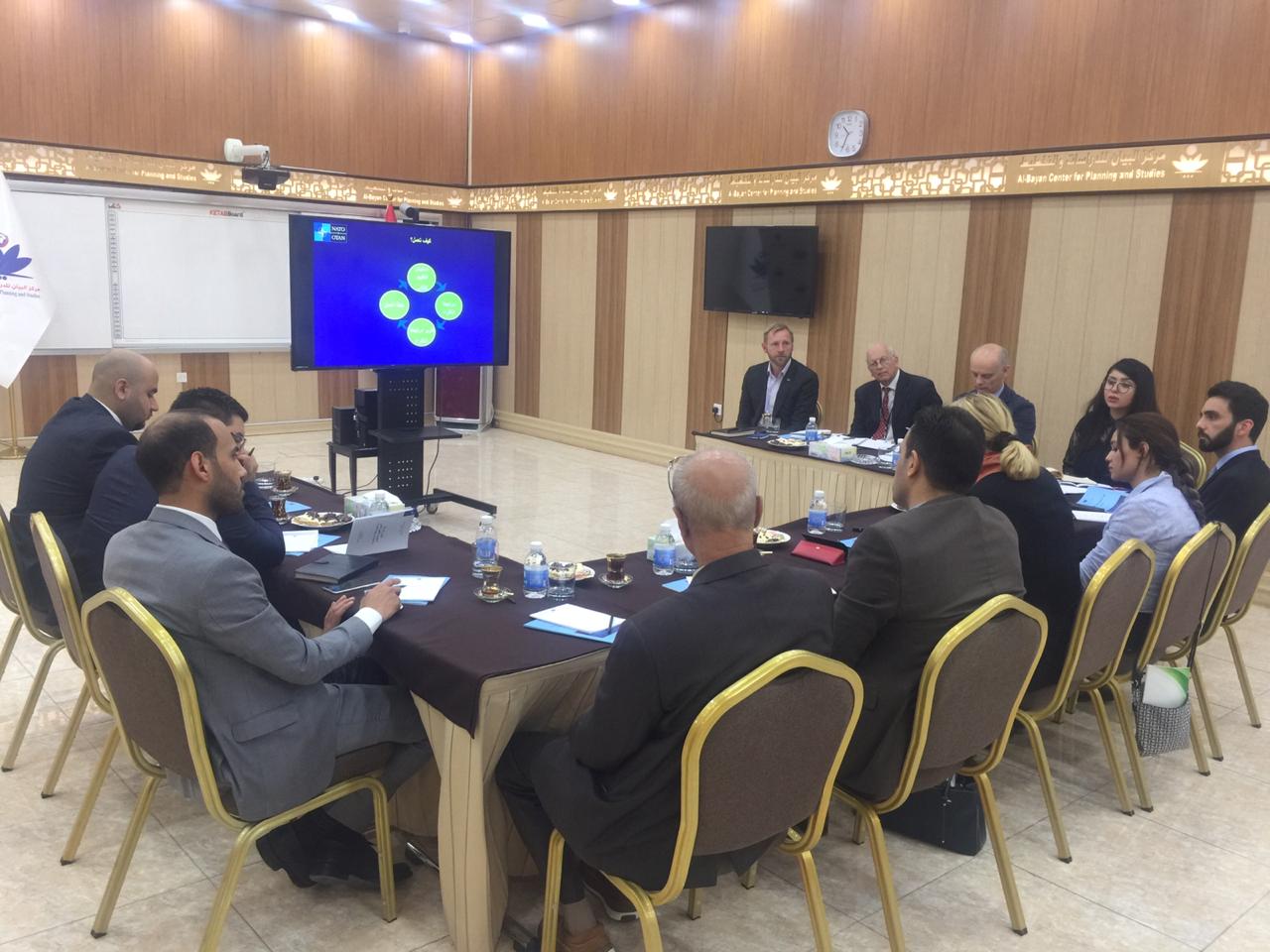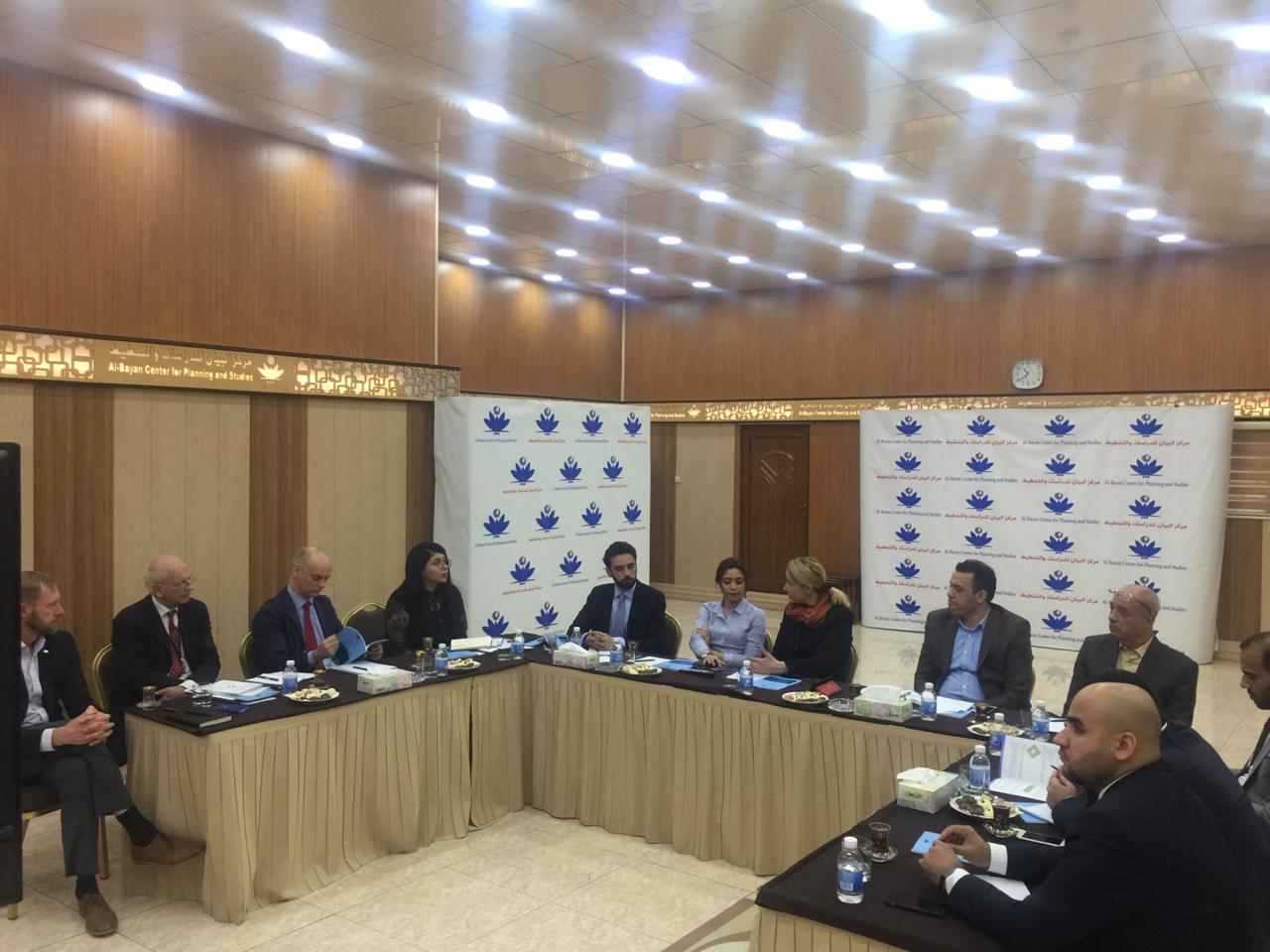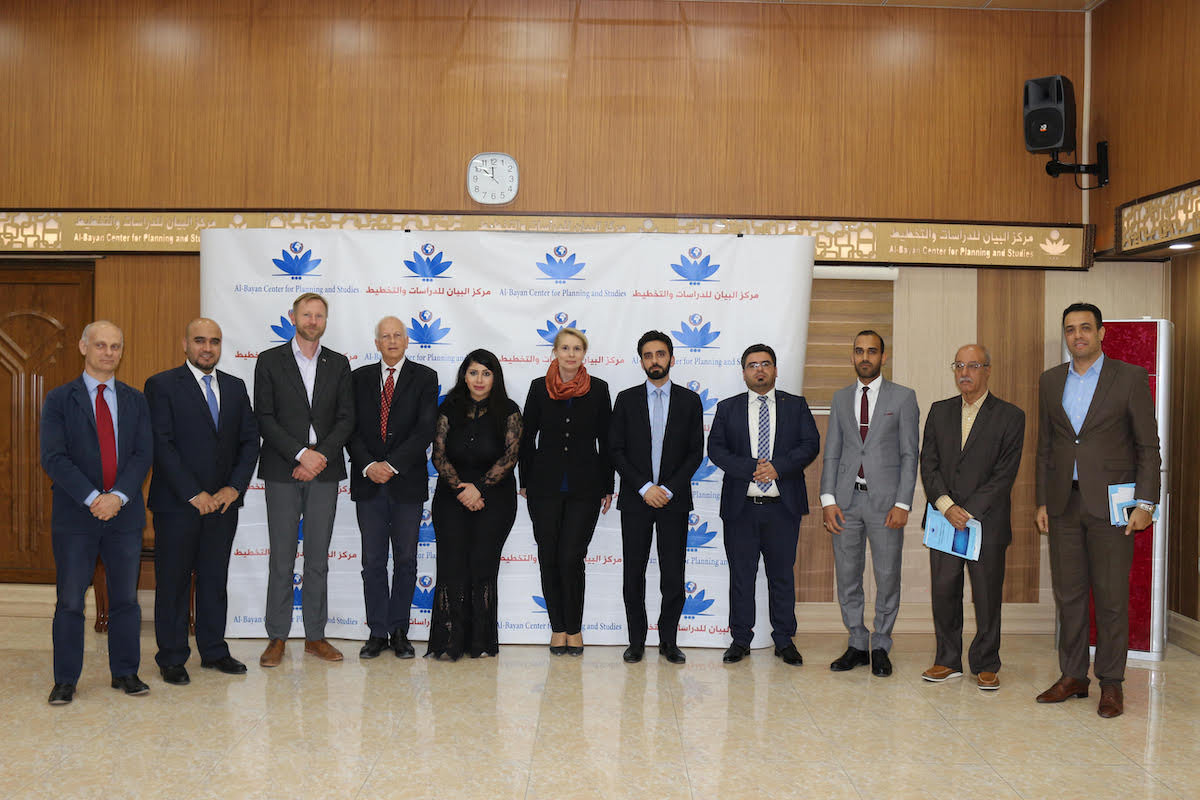On May 2, 2019, the Bayan Centre for Planning and Studies hosted a delegation from the North Atlantic Treaty Organization (NATO) in a panel discussion on NATO’s Building Integrity (BI) Policy and Action Plan in the fight against corruption in the defence and security institutions. The seminar was attended by a number of NATO’s international staff and a number of university lecturers and researchers in the anti-corruption field.
The NATO mission reviewed some of the achievements of its Building Integrity (BI) Programme in a number of countries. The head of the delegation, Dr Nadja Milanova, outlined certain aspects of the history of NATO’s joint support plan for the building of defence institutions since 2004, as well as NATO’s Building Integrity (BI) Policy endorsed by the Heads of State and Government at the Warsaw Summit in 2016.
Milanova said the NATO project aims at strengthening good governance in the defence and related security sector and to help countries to meet their national anti-corruption obligations, as well assisting them with the implementation of reforms at the individual and institutional levels. She noted that the necessity for the implementation of the principles of openness, transparency, integrity, accountability, as well as the application of correct policies and legal controls for good governance practices; all resulted from the historic abuse of authority (public and private) for illicit gains (corruption) by the persons concerned.
At the end of her talk, Dr. Milanova stressed that integrity building begins with a practical national political will, a strong national policy vision, an assessment of the risks of corruption with NATO’s self-assessment questionnaire which has been designed as a diagnostic toolkit; making use of available methodology developed at the international level, as well as a clear strategy to put into practice the recommendations gleaned from the questionnaire with an objective external evaluation aimed at diagnosing and resolving the defects.
It is noteworthy that al-Bayan Centre for Planning and Studies has in the past worked with researchers in the field of anti-corruption to prepare a clear strategy to combat corruption in different sectors of the country. The Centre has also worked on translating international reports in this field in coordination with the World Bank.








